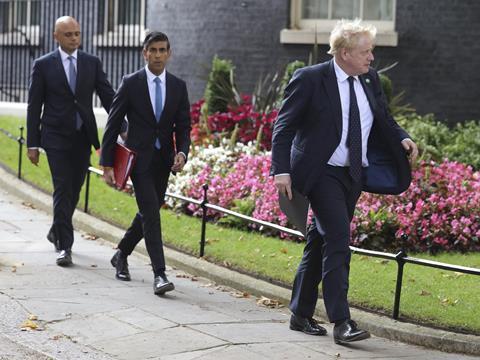It was Harold Wilson who coined the immortal line that a week is a long time in politics, but even he would have been shocked by the speed of events since Rishi Sunak and Sajid Javid resigned from the government and between them precipitated a tsunami of resignations that even Boris couldn’t resist. Since when we’re now deep in the choice of his successor.

As far as the property industry is concerned, our primary interest must surely be clarity on the new government’s approach to managing inflation, which in the space of a few months has gone from a near economic irrelevance to a massive challenge to household budgets.
Doing something to ease the burden of the cost-of-living crisis must surely mean concentrating on helping the least well-off. That would suggest a sharp cut in fuel duty (remember, for every pound you pay at the pump the Treasury takes 42p) and possibly a cut in VAT, which again helps poorer families most. So far, Sunak seems resistant to immediate tax cuts. I believe he is wrong on this and he would only get my personal support if he acknowledged the need to change.
My fear is that if Sunak is on the ballot paper, he may not emerge as the winner
Interest rates are also clearly due to rise further, which must mean that buy-to-rent yields, which have been treated in recent years as a proxy for the bond market, are now less attractive to pension funds. As mortgage costs rise, presumably demand for housing at the lower end of the market will reduce and the net effect on the market as a whole will be negative.
And on a wider basis, we need to know whether the utterly crazy idea of raising corporation tax rates has finally been kyboshed, given that in a post-Brexit world the whole appeal was to be able to reduce them to make the UK the Singapore of Europe for external investors. That said, on the TV hustings Sunak has looked like the only grown-up.

It hasn’t helped that Boris fired Michael Gove for the cardinal offence of telling him the game was up. Like him or loathe him (and right now the industry would probably be split down the middle), Gove proved in his brief time at the helm of his clumsily named department that he was prepared to come up with radical solutions to some of the hardy annuals we have grappled with for too long: clarity around planning reform; a forensic examination of exactly how many new houses the nation needs and, more to the point, where they should be built; a radical solution to end the blight of empty shops in secondary high streets; and screwing more out of developers to tackle the cladding issue than anyone ever predicted. All this in months.
A class act
Yes, Gove also played to the Tory gallery, suggesting that local communities should “have more say on” (a polite way of saying “more power to reject”) development they didn’t like, but he is a class act for sure.
For what it’s worth, I have long believed it was a huge mistake for the Tory party to allow its members to vote for their leader. It is a fairly recent development introduced by David Cameron, who had no idea what the consequences would be. His successor was due to be elected by members until Andrea Leadsom withdrew and left Theresa May as the last candidate standing.
And then when Boris took on Jeremy Hunt, while the latter was clearly the more competent, decent and serious members elected a man who in three years singlehandedly almost destroyed the party. If Margaret Thatcher and one of her male, pale and stale opponents had been put to the membership in 1975, she would never have been elected.
My fear is that if Sunak is on the ballot paper, he may not emerge as the winner. If that happens, my strong advice is to fasten your seatbelts.
Steve Norris is chairman of Soho Estates and Future-Built






























No comments yet